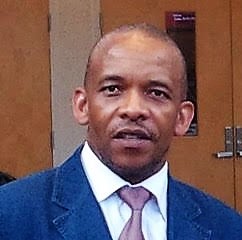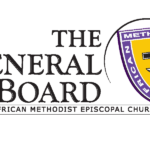By the Rev. Teboho G. Klaas, 19th Episcopal District
I am a heterosexual man, Christian, and a pastor in the AME Church in South Africa. Motivated by my hate for hatred, injustice, and inequality, I hereby write to clarify my daily preoccupation of being an ally of sexual and gender non-conforming people.
I blame the AME Church for my conscientious objection to homophobia because it is the one and only denomination that shapes my perspectives to life. I owe my being to its teachings and traditions as it is my denomination of choice. It is a legacy my parents bequeathed me, brought me up in, and made me love dearly.
South Africa, the country in which I was born and grew up, attempted to devalue my worth because I was born Black. It indoctrinated me to accept myself lower than other people of different races. Its political system of apartheid was anchored on selected biblical verses designed to make me believe and accept my dehumanisation as sacred. They were so few and yet they lifted them as though they were central and so supreme in the bible. It was an ideological discourse theologically justified.
I took the teachings the AME Church seriously and that led me to know that the global ecumenical movement declared apartheid a heresy. Further, it is an ideology which was politically declared to be a crime against humanity by the world. That was accompanied by international solidarity to fortify the waged struggle towards justice, freedom, and democracy in South Africa to the demise of the evil system.
Significance of the AME Church motto
Inspiring my commitment to social justice was the then AME Church motto, “God our Father, Christ our Redeemer and Man our Brother.” Its language was imperfect and inadequate but its essence was significantly inspirational on two accounts. It was doctrinally not Trinitarian and was socially insensitive to gender equality. On the latter, understanding its essence, I justified the language and communicated its implied significance, namely, that man meant humanity—that is, both male and female or both men and women.
An inclusive language to the motto only came recently in 2009: “God our Father, Christ our Redeemer, Holy Spirit our Comforter and Humankind our Family.” It came with a struggle that was characterised by dialogical engagements, negotiating ways to pass through the limitations of General Conferences, to amending historical doctrinal decisions of the denomination.
Long before the motto was amended, in practice, both males and females led the church and shaped its future. After all, were it not because of the pioneering role of the late Makgomo Charlotte Mannya-Maxeke, the denomination would not exist in southern Africa. Beyond her, many more other leading women played vital roles in shaping the future of the church and society, including women such as the late Pelonome Catherine Makhene and Bertha Gxowa.
What blocks movement now?
Despite the limitation of the language of the then motto, much was accomplished. Then, what is now the lack of movement in humanising others when the language of the motto is so inclusive? Why is our denomination silent to the lived reality of people whose sexual and gender non-conformity is not heteronormative? Is there any justification for their exclusion from the human race other than they are simply not categorised as cisgender people? If they are human, why is it that we are explicit about them when we deny them and are so unequivocal to their right to loving covenantal relationships such as marriage but not as explicit to their human existence?
We have been warned before about the evils of silence by others like the Archbishop Emeritus Mpilo Tutu, lest we are complicit to injustices against them. Silence actively denies them solidarity and social justice, which is their right to be. The image of God in them is denied simply because of being sexually and gender at variance with being heterosexual.
Our silence is adopting an ostrich attitude which is not helpful and truthful to the motto of the church currently espoused and its liberation history. Suddenly, we suffer from amnesia to the fact that there existed theologies and selective biblical discourses dehumanising black people, as well as women, which thrived on perpetuating hatred, discrimination, inequality, and making us less than human and incapable being genuine Christian.
Earlier this year, the Rev. Dr. Jennifer S. Leath, as a guest editor for The Christian Recorder, convincingly asserted three critical calls to take the AME Church forward—namely, integrity, discernment, and polity update. I am in total agreement with the calls and I submit that the basis of moving forward should begin with the currently amended and widely accepted motto, especially the part on “Humankind our Family.”
Building on the call, prayerfully we must be a people of discernment. Be a people of dialogue. Be decisive people.
The Rev. Teboho Klaas is the pastor of Robinson Temple AME Church in the 19th Episcopal District and Religion Programme Officer of the Other Foundation.





